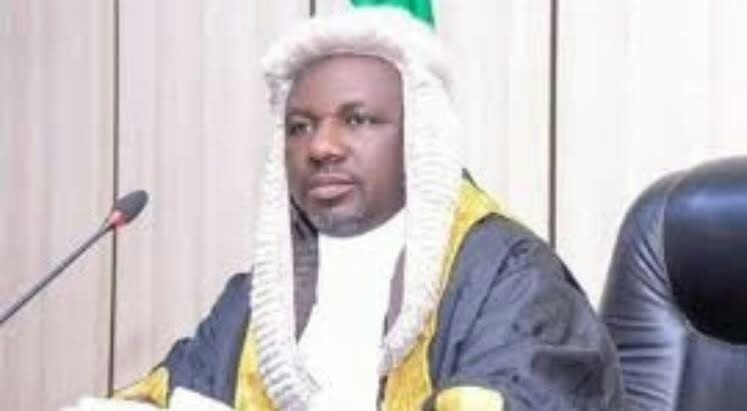Benue State Assembly Experiences Political Upheaval Following Former Speaker’s Suspension
On Tuesday, the Benue State House of Assembly witnessed a significant political confrontation when Aondona Dajoh, the immediate past Speaker, was suspended shortly after his unexpected resignation. This development has intensified the already volatile political atmosphere in the state.
Allegations of a Coup Against Governor Alia
Dajoh’s suspension stemmed from accusations that he was orchestrating a scheme to remove Governor Hyacinth Alia from office. Assembly members accused him of attempting to destabilize the state’s governance by plotting an impeachment, a charge they deemed highly disruptive to Benue’s political stability.
New Leadership Reverses Previous Decisions
The session, chaired by the newly appointed Speaker Alfred Berger, was marked by a series of contentious decisions, including the reversal of several rulings made under Dajoh’s tenure. Notably, the motion to suspend Dajoh was introduced by Terna Shimawua, representing Kyan Constituency, and seconded by James Umoru from Apa Constituency. Intriguingly, Shimawua himself had been suspended by Dajoh just days before the latter’s resignation, highlighting the ongoing factional disputes within the Assembly.
Suspension Details and Procedural Anomalies
Speaker Berger approved a three-month suspension for Dajoh, reducing the initially proposed six-month term. However, the decision bypassed the usual legislative process, as it was not subjected to a voice vote, an unusual move that raised questions about procedural transparency.
Reconsideration of Controversial Nominations
In a notable shift, the Assembly revisited a previously contentious decision by confirming Timothy Yangien Ornguga, a law lecturer at Benue State University, as commissioner. This came just a week after his nomination was rejected under Dajoh’s leadership. Additionally, Governor Alia’s fresh letter to the House facilitated the screening and approval of five other nominees, including James Dwem, whose earlier nominations had faced opposition.
Governor Alia emphasized that neither Ornguga nor Dwem had any criminal convictions despite petitions filed against them, urging the lawmakers to reconsider their appointments. This time, opposition voices were noticeably subdued, and the confirmations proceeded without the customary voice vote, signaling a shift in the Assembly’s dynamics.
Restoration of Suspended Government Officials
Further demonstrating a thaw in relations between the legislature and the executive, the Assembly lifted suspensions on three government officials previously sanctioned by the governor: Grace Adagba, Chairman of the Benue State Universal Basic Education Board (SUBEB); Maxwell Ogiri, Chairman of Otukpo Local Government Area; and Michael Uper, Secretary of the Benue State Lottery Board. This move suggests a renewed collaborative spirit aimed at stabilizing governance after weeks of political friction.
Implications for Benue’s Political Landscape
The suspension of Dajoh, coupled with the Assembly’s reversal of his decisions, highlights the intricate power struggles shaping Benue’s political environment. While the legislature currently appears aligned with Governor Alia’s administration, the recent events underscore that underlying tensions remain unresolved. Political analysts note that such developments could foreshadow further realignments as the state approaches upcoming electoral cycles.
According to recent data, political instability in Benue has impacted local governance and development projects, with some estimates indicating a 15% slowdown in public service delivery over the past quarter. The evolving relationship between the Assembly and the executive branch will be critical in determining the state’s trajectory in the coming months.


















0 Comments